Qinghao Wen
Voxel-Level Brain States Prediction Using Swin Transformer
Jun 13, 2025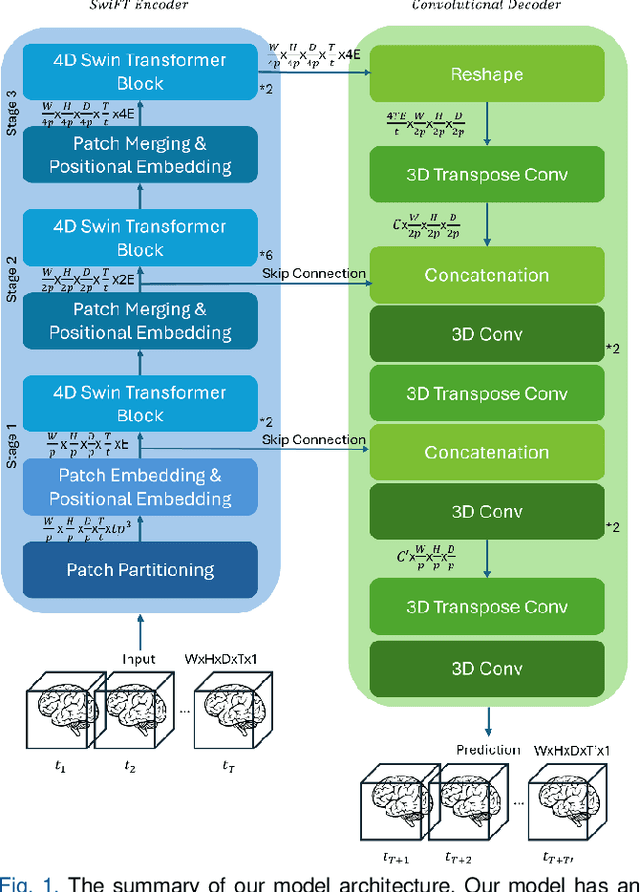
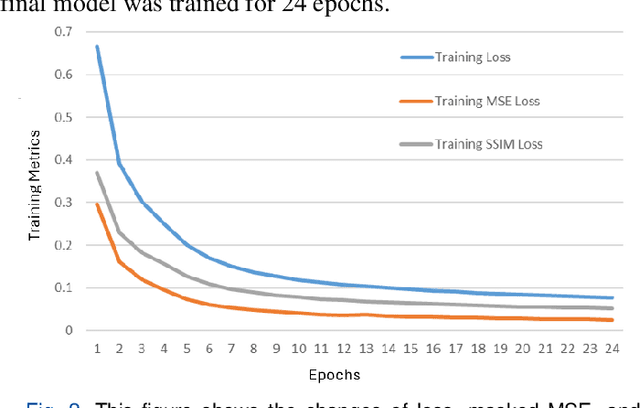
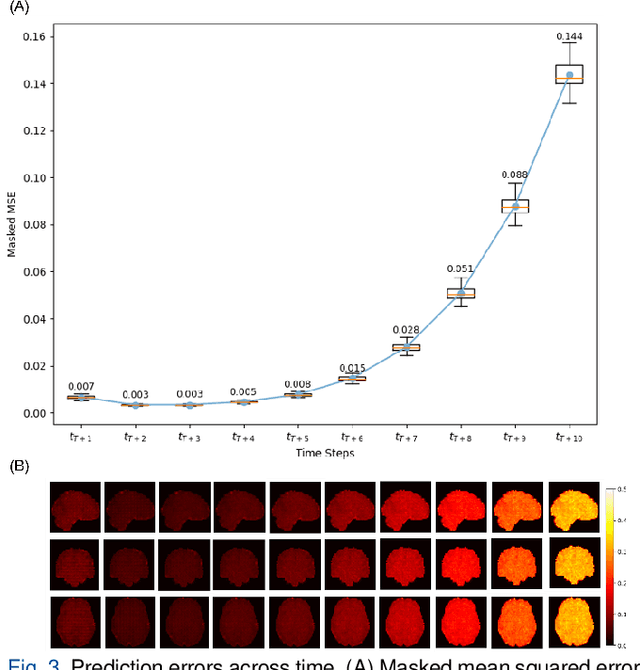
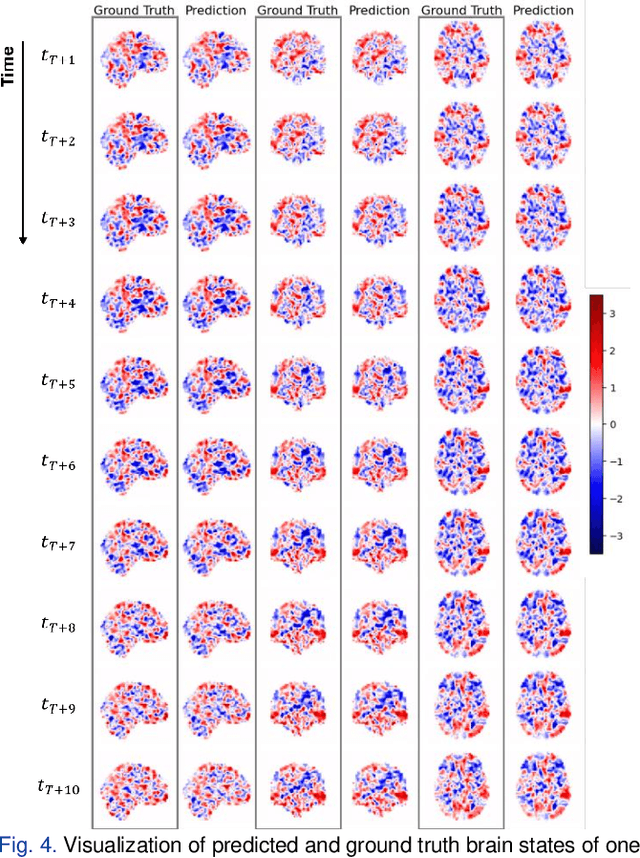
Abstract:Understanding brain dynamics is important for neuroscience and mental health. Functional magnetic resonance imaging (fMRI) enables the measurement of neural activities through blood-oxygen-level-dependent (BOLD) signals, which represent brain states. In this study, we aim to predict future human resting brain states with fMRI. Due to the 3D voxel-wise spatial organization and temporal dependencies of the fMRI data, we propose a novel architecture which employs a 4D Shifted Window (Swin) Transformer as encoder to efficiently learn spatio-temporal information and a convolutional decoder to enable brain state prediction at the same spatial and temporal resolution as the input fMRI data. We used 100 unrelated subjects from the Human Connectome Project (HCP) for model training and testing. Our novel model has shown high accuracy when predicting 7.2s resting-state brain activities based on the prior 23.04s fMRI time series. The predicted brain states highly resemble BOLD contrast and dynamics. This work shows promising evidence that the spatiotemporal organization of the human brain can be learned by a Swin Transformer model, at high resolution, which provides a potential for reducing the fMRI scan time and the development of brain-computer interfaces in the future.
Distance-Forward Learning: Enhancing the Forward-Forward Algorithm Towards High-Performance On-Chip Learning
Aug 27, 2024

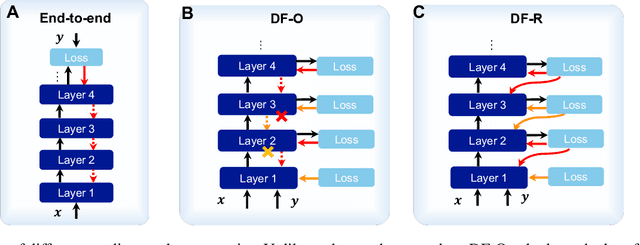

Abstract:The Forward-Forward (FF) algorithm was recently proposed as a local learning method to address the limitations of backpropagation (BP), offering biological plausibility along with memory-efficient and highly parallelized computational benefits. However, it suffers from suboptimal performance and poor generalization, largely due to inadequate theoretical support and a lack of effective learning strategies. In this work, we reformulate FF using distance metric learning and propose a distance-forward algorithm (DF) to improve FF performance in supervised vision tasks while preserving its local computational properties, making it competitive for efficient on-chip learning. To achieve this, we reinterpret FF through the lens of centroid-based metric learning and develop a goodness-based N-pair margin loss to facilitate the learning of discriminative features. Furthermore, we integrate layer-collaboration local update strategies to reduce information loss caused by greedy local parameter updates. Our method surpasses existing FF models and other advanced local learning approaches, with accuracies of 99.7\% on MNIST, 88.2\% on CIFAR-10, 59\% on CIFAR-100, 95.9\% on SVHN, and 82.5\% on ImageNette, respectively. Moreover, it achieves comparable performance with less than 40\% memory cost compared to BP training, while exhibiting stronger robustness to multiple types of hardware-related noise, demonstrating its potential for online learning and energy-efficient computation on neuromorphic chips.
 Add to Chrome
Add to Chrome Add to Firefox
Add to Firefox Add to Edge
Add to Edge